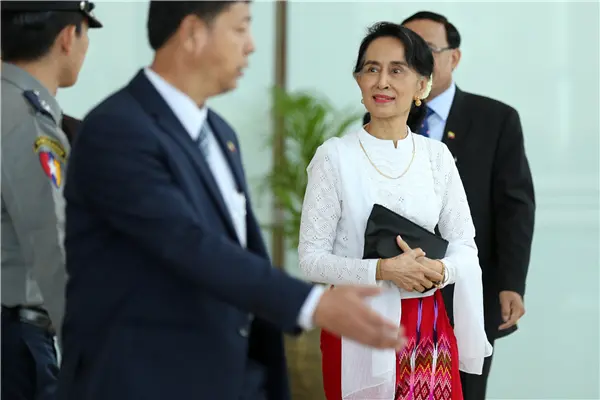Myanmar's first State Counselor Aung San Suu Kyi, who starts an official visit to China on Wednesday, is welcome to play a greater role in boosting her country's strategic partnership with China.
Suu Kyi's visit comes roughly one week after Myanmar President U Htin Kyaw decided to form a new commission for reviewing all proposed hydropower projects on the Irrawaddy River, including the Myitsone Dam, which is jointly funded by China and Myanmar but was suspended by the former Myanmar government in 2011.
Although the move does not necessarily lead to a final resumption of the project, it is a positive signal that the new leadership in Naypyidaw is handling its relationship with Beijing in a prudent and pragmatic manner.
For the record, the Myitsone Dam is a key bilateral commercial project, while the Chinese backer of the project has already paid 60 percent of the investment. Once the project is completed and put into operation, Myanmar can make the most of the Irrawaddy River's hydropower resources, and export electricity in return for handsome economic benefits, a win-win deal.
Myanmar State Counselor Aung San Suu Kyi (R, front) walks at the Yangon International Airport in Yangon, Myanmar, Aug. 17, 2016. She left Yangon on Wednesday for Beijing, starting a five-day official visit to China. Photo By: Xinhua/U Aung
Despite the lingering misunderstanding and criticism about the project inside Myanmar, it is hoped that the two neighbors can work together to manage their differences and find an appropriate solution.
In fact, projects like the Myitsone Dam are what the Southeastern Asian nation needs to boost its own economic growth, and improve the livelihood of its people, one of the current Myanmar government's top priorities.
China is Myanmar's top trading partner, and a key source of investment. Presently, China is promoting the Belt and Road Initiative. By embracing the initiative, Myanmar can enjoy huge opportunities to upgrade its industrial system and improve its infrastructure, which would pave the way for the country's future economic take-off.
The Belt and Road Initiative, which comprises the Silk Road Economic Belt and the 21st Century Maritime Silk Road, was proposed by Chinese President Xi Jinping in 2013, with the aim of building a trade and infrastructure network connecting Asia with Europe and Africa along the ancient Silk Road routes.
For Suu Kyi and the Myanmar government, seeking national reconciliation and restoring peace and stability in the country is another paramount challenge.
Recently, Naypyidaw has put forward a 12-point national economic policy paper in a bid to boost national reconciliation by reviving the country's economy. And China is a natural partner that can help translate the bold plan into reality.
Meanwhile, China has made it very clear that it supports the peace process in Myanmar, and hopes that all armed ethic groups in the country can participate in the 21st Century Panglong Peace Conference to be held in Myanmar's capital at the end of this month.
After all, a politically stable and economically prosperous Myanmar is in China's best interests.
Given the fact that a strong China-Myanmar partnership is important for both sides, it is welcome that Suu Kyi, a key figure in the Myanmar government and the leader of the ruling party, plays a greater role in helping secure a healthy Myanmar-China relationship.
(APD)
 简体中文
简体中文

